(srpski) Pamtimo zločin u Orahovcu: 20 godina od zločina nad srpskim civilima
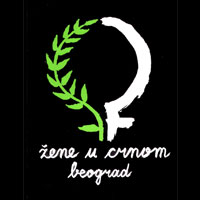
Sorry, this entry is only available in srpski.


Sorry, this entry is only available in srpski.

On Friday, 27 July 2018, the Humanitarian Law Center (HLC) will present the “Second Report on the Implementation of the National Strategy for the Prosecution of War Crimes” and the “Policy Paper: Accounting for Missing Persons from the Armed Conflicts of the 1990s in the Former Yugoslavia”. The presentation will take place at 11:00 in the Great Hall of the Media Centre (Terazije 3, 2nd Floor).
On 20 February 2016, the Government of the Republic of Serbia adopted the first National Strategy for the Prosecution of War Crimes 2016-2020. The HLC has been monitoring the implementation of the National Strategy since its adoption, in order to offer its independent assessment of and findings on the state of implementation of the National Strategy. The initial HLC report on the implementation of the National Strategy was released in December 2017.The second HLC report on the implementation of the National Strategy (Report) provides an overview of the implementation of activities in the period from 1 December 2017 to 01 June 2018, in eight areas covered by the National Strategy. The report points to key deficiencies and identifies recommendations for improving the situation in these areas.
The HLC will also present its “Policy Paper: Accounting for Missing Persons from the Armed Conflicts of the 1990s in the Former Yugoslavia”, which provides an overview of the current results and of the challenges that have arisen in the process of searching for persons who went missing during armed conflicts in the former Yugoslavia in the 1990s, and proposes recommendations for improving efficiency in this area.
Speakers:
Simultaneous interpretation into English will be provided.
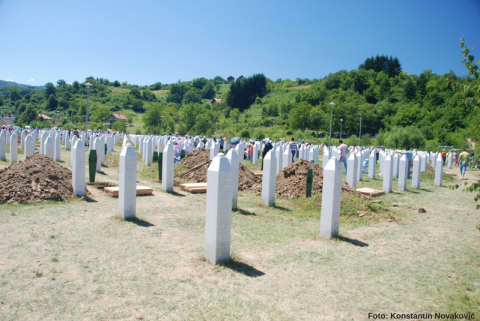
Sorry, this entry is only available in srpski.
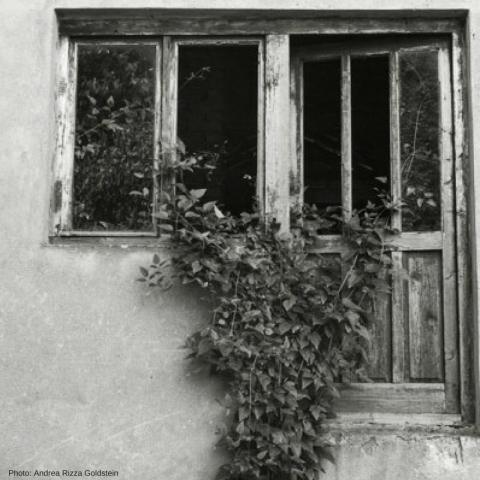
Deciding upon appeal, the Court of Appeal in Belgrade confirmed the judgment of acquittal rendered in the case of members of the „Sima’s Chetniks“ unit, who were charged with the destruction of a mosque and murder of 27 Roma civilians in the village of Skočić (Zvornik, Bosnia and Herzegovina), crimes committed in July 1992; whilst the court modified the judgment in the case of the accused Zoran Alić, Zoran Đurđević and Tomislav Gavrić, and found them guilty of inhuman treatment, violation of physical integrity, sexual humiliation and rape of protected witnesses. Tomislav Gavrić and Zoran Đurđević were sentenced to 10 years in prison each, whereas Zoran Alić was sentenced to 6 years of imprisonment. The HLC holds that the Court of Appeal additionally aggravated the process of proving co-perpetration in cases of war crimes with the judgment at issue, by putting almost impossible conditions before the Office of the War Crimes Prosecutor (OWCP), which it has to meet in the prosecution of complex cases of war crimes.

Sorry, this entry is only available in srpski.

 Since the end of the conflict in the former Yugoslavia, just enough years have passed for children born after the wars to became legal aged and to begin thinking about the world around them. In the meantime, each society in which they grew up has built a narrative of the wars in the past in the former Yugoslavia. Will these young persons’ – just until yesterday merely children – parents, professors, media or politicians teach them that the only, or at least the most numeous, victims of past wars were Croats, Bosniaks, Albanians or Serbs depending solely on the environment in which they were born?
Since the end of the conflict in the former Yugoslavia, just enough years have passed for children born after the wars to became legal aged and to begin thinking about the world around them. In the meantime, each society in which they grew up has built a narrative of the wars in the past in the former Yugoslavia. Will these young persons’ – just until yesterday merely children – parents, professors, media or politicians teach them that the only, or at least the most numeous, victims of past wars were Croats, Bosniaks, Albanians or Serbs depending solely on the environment in which they were born?
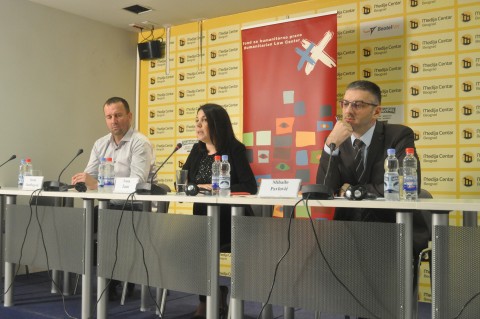
On June 28th 2018, the Humanitarian Law Center (HLC) presented its Report, “Circumventing Justice: The Statute of Limitation as a Mechanism for Denying War Victims the Right to Compensation”. The Report analyses the practice of courts of the Republic of Serbia in proceedings for the compensation of damages which have occurred as a consequence of the conflicts during the 1990s, and the way in which the courts have interpreted the legal provisions that apply to the statute of limitation for damages arising from a criminal offence.

Expressing the sense of the House of Representatives regarding the execution-style murders of United States citizens Ylli, Agron, and Mehmet Bytyqi in the Republic of Serbia in July 1999.
IN THE HOUSE OF REPRESENTATIVES
February 6, 2017
Mr. Zeldin (for himself, Mr. Smith of New Jersey, Mr. Engel, and Ms. Meng) submitted the following concurrent resolution; which was referred to the Committee on Foreign Affairs

 The conclusions of a new study out of Belgrade on the role of the Yugoslav People’s Army (JNA) in the Balkan wars of the 1990s include one finding that might shock some readers. The Center for Humanitarian Law in the Serbian capital appears to be saying that the army that gave birth to Yugoslavia eventually also destroyed it.
The conclusions of a new study out of Belgrade on the role of the Yugoslav People’s Army (JNA) in the Balkan wars of the 1990s include one finding that might shock some readers. The Center for Humanitarian Law in the Serbian capital appears to be saying that the army that gave birth to Yugoslavia eventually also destroyed it.
The study covers the decade, from the early 1980s to 1992, leading up to the collapse of the Yugoslav federation and analyzes the transformation of the JNA from an armed force that was as ethnically mixed as the country it was meant to protect, to one that was effectively an ethnic Serb army.
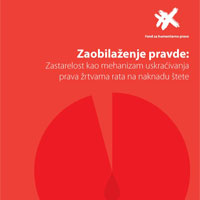
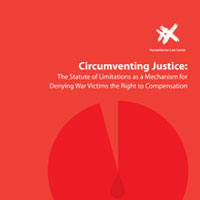 The Republic of Serbia participated in all the armed conflicts that took place in the territory of the former Yugoslavia during the last decade of the twentieth century. A large number of people died, or disappeared, or became refugees, and very many suffered enormous material and non-pecuniary damage as a result of these conflicts.
The Republic of Serbia participated in all the armed conflicts that took place in the territory of the former Yugoslavia during the last decade of the twentieth century. A large number of people died, or disappeared, or became refugees, and very many suffered enormous material and non-pecuniary damage as a result of these conflicts.
The obligation of the Republic of Serbia to provide just compensation to victims of human rights violations arises not only from the substantial provisions of the Serbian Constitution and domestic regulations but also from the international conventions that Serbia has ratified.
In spite of the existence of clear provisions of both domestic and international law and the well-established case-law of international bodies, victims in Serbia find it virtually impossible to enforce their right to reparations before the domestic courts. The difficulties victims face in the process are varied. The standard of proof is set too high, court proceedings drag on for several years, courts do not believe the victims and their evidence, to name just a few. Provisions governing statutory-limitation periods for filing compensation claims – or rather, the way Serbian judges interpret them, is one of the major obstacles faced by victims.
The report Circumventing Justice: The Statute of Limitations as a Mechanism for Denying War Victims the Right to Compensation points out the marked tendency of the domestic judiciary to interpret statute of limitations rules in a manner that leads to the denial of the right to compensation for the victims of gross violations of human rights, by ruling their right to compensation time-barred. Such an arbitrary application of the statute of limitations for bringing compensation claims works against the interests of the victims and amounts to a grave violation of the right to a fair trial guaranteed by both domestic and international regulations.